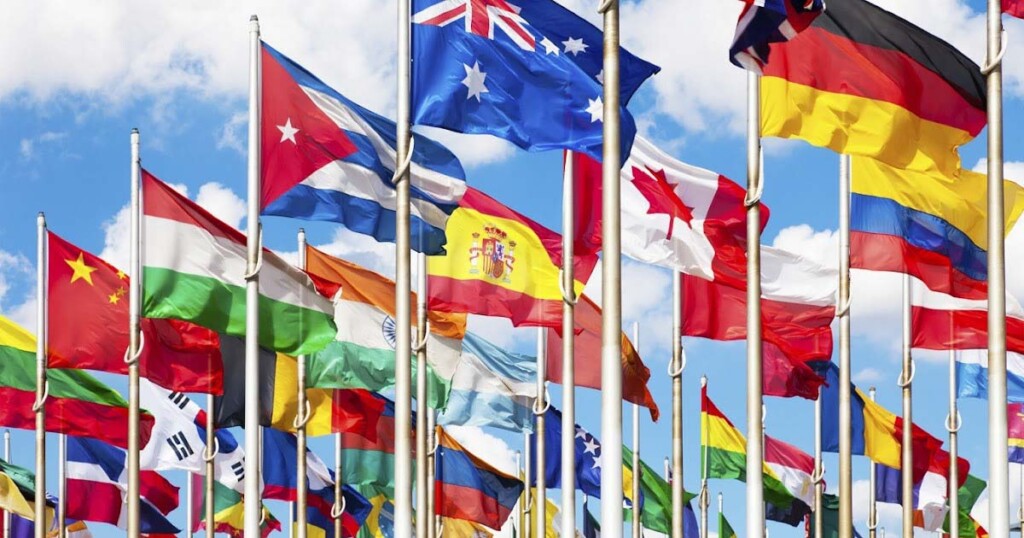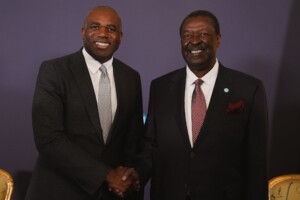World leaders call for calm in Sudan on second day of deadly SAF-RSF conflict

(File photo: Creative Commons)
NEW YORK / CAIRO / KHARTOUM / LONDON / GENEVA / BRUSSELS / WASHINGTON –
International leaders have voiced a chorus of condemnation for Sudan’s violent inter-factional military clashes which began in the country’s capital of Khartoum, and since spread to other parts of the country, claiming at least 56 civilian and dozens of military lives. The warring factions, Sudan’s Armed Forces (SAF) commanded by Lt Gen Abdelfattah El Burhan and the Rapid Support Forces (RSF) headed by Lt Gen Mohamed ‘Hemeti’ Dagalo, have battled it out on the streets, and from the air, since yesterday morning.
Rising political tensions brewing over the past weeks have erupted into outright devastation in the country’s capital and elsewhere, various international leaders, humanitarian NGOs, and medical organisations, have denounced the heavy gunfire and shelling rocking the city and called for calm.
In a press statement from the UN Secretary-General Antonio Guterres yesterday, the UN chief urged for an immediate cessation to the hostility and for both parties to “initiate a dialogue to resolve the current crisis”.
Guterres called on UN member states in the region to support efforts in restoring order, as well as restoring the “path of transition”. The Secretary-General has reportedly opened various channels with leaders in the region and reaffirmed his commitment to supporting the people in Sudan “realise their aspirations for building a peaceful and secure future”.
The Arab League also appealed for the immediate halt to the clashes in Sudan. Reports confirmed earlier that the league will hold an emergency meeting today, at the request of Egypt and Saudi Arabia.
UNITAMS
United Nations Special Representative and UN Integrated Transition Assistance Mission in Sudan (UNITAMS) head Volker Perthes also weighed in on Sudan’s current inter-factional upheaval, asking both parties to exercise restraint “to ensure the safety of the Sudanese people and to spare the country from further violence”.
Many critics blamed UNITAMS for inadvertently sparking this conflict by pushing and lobbying for the Framework Agreement, originally meant to consolidate power and enact a transition for a civilian government.
US Secretary of State Antony Blinken underpinned the fragile nature of the current volatility being felt in Sudan, warning of “other actors pushing against” the progress towards a civilian-led transition, by way of the Framework Agreement. Blinken stated that he was engaging with the Foreign Minister of Saudi Arabia, Faisal bin Farhan El Saud, and the Foreign Minister of the United Arab Emirates, Abdullah bin Zayed El Nahyan, with a view to halt the fighting.
Deescalate
British Foreign Secretary James Cleverly stated in a tweet that the “UK calls on the Sudanese leadership to do all they can to restrain their troops and deescalate to prevent further bloodshed”. The UK Foreign Office also issued a press statement, expressing “heartfelt regret for the loss of innocent lives by those caught up in this violence”, adding that “military action is not the solution”.
‘Military action is not the solution…’ – UK Foreign Office
The Sudan Troika (Norway, UK, USA) and European Union (EU) envoys echoed the international outrage denouncing the SAF-RSF clashes. Their statement highlighted how these “escalatory actions” sought to threaten and derail negotiations towards establishing a civilian-led transitional government.
“We urge them [the parties] to hold to their commitments and engage constructively to resolve outstanding issues on security sector reform to establish a future unified, professional military accountable to a civilian government,” the statement reads.
“The Troika reserves hope for the Framework Agreement delivering on the aforementioned issues and hoped it would bring about the “democratic aspirations of the people of Sudan”.
The Troika’s joint statement with the EU concluded by reinforcing the need for civilian-led transitional government to address Sudan’s urgent “political, economic, security, and humanitarian challenges”.
High Representative of the European Union for Foreign Affairs and Security Policy Josep Borrell called on the violence to stop immediately. He warned that the continuing escalation would only aggravate the situation. Borrell added that the protection of “citizens is a priority”, and that all EU staff in the country were currently safe and accounted for.
UN WFP suspends operations
Three employees of the UN World Food Programme (WFP) died, and two more were injured, when SAF and RSF troops clashed at a military base in Kabkabiya, North Darfur. A “horrified” WFP confirmed the deaths is a statement responding to questions from Radio Dabanga, and condemned the deadly shooting. The WFP spokesman called on “all sides in Sudan to respect the neutrality of humanitarian workers in Sudan whose role is to assist all sides in this crisis”.
‘There is no excuse for targeting humanitarian workers…’ – WFP
Expressing condolences to the families of the deceased, WFP emphasised that “there is no excuse for targeting humanitarian workers”.
The spokesman also lamented that “a WFP-managed UN Humanitarian Air Service (UNHAS) aircraft was also damaged at Khartoum International airport on 15 April, seriously impacting WFP’s ability to move staff and provide assistance to hungry people across the country.
“Threats to WFP staff and those working for other agencies undermine our vital work and undermine our ability to operate effectively in the country by reaching those in need,” the spokesman told Radio Dabanga.
“WFP has been forced to temporarily halt its operations while we review the security situation. The ongoing violence has a severe impact on our work and on the people that we serve. We urge all parties to come to an agreement that enables the continued delivery of life-saving humanitarian assistance in Sudan,” the spokesman concluded.
Sudan Doctors
The Sudanese Medical Association called for “aid and medical supplies to all hospitals and health facilities in Khartoum and the areas of clashes in the various states”, in a post on Facebook today.
The medical activists highlighted the need for the necessary procedures to allow safe passage for ambulances and medical personnel to escort the wounded. They also added that security for health facilities and hospitals must be provided and renewed their appeal for international intervention to stop the country’s in-fighting.











 and then
and then